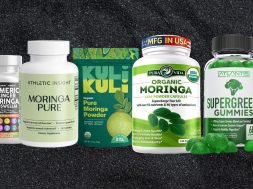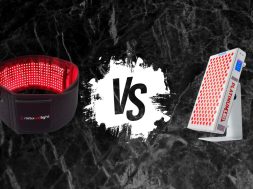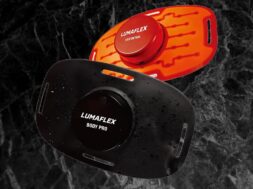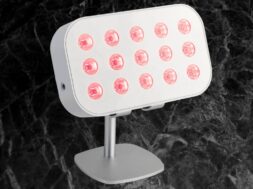
If you’ve read any of my several nootropic comparisons that include Noocube, you may notice it’s usually the winner. This is because it is an affordable non-stimulant nootropic that has consistently delivered effects to me, and the only products that are objectively better are usually twice as expensive.
Mind Vitality is a promising contender at a similar price range and comparable formulation. But does it have what it takes to win over Noocube?
Noocube is a much better nootropic than Mind Vitality because it wins in every important comparison category- It’s better dosed, formulated, and cheaper.
My personal experience with it has been great, while Mind Vitality didn’t deliver any brain power or energy.
Mind Vitality’s main issues are the small doses of some key ingredients and the big, rough pills. Despite the problems, some people may find it beneficial, and it may work better than it did for me.
| Feature | Winner |
|---|---|
| Ingredients | Noocube |
| Dosage | NooCube |
| Short-Term Effects | Noocube |
| Long Term Effects | NooCube |
| Third-Party Testing | Draw |
| Clinical Research | Draw |
| Side Effects | Draw |
| User Reviews | Draw |
| Price | Noocube |
Winner
Based on my experience with each nootropic supplement, neither NooCube nor Mind Vitality hold a light to Mind Lab Pro.
Mind Lab Pro has 3 clinical studies backing it’s formula and is a non-stimulant nootropric to enhance short and long term brain function.
What Is Noocube?
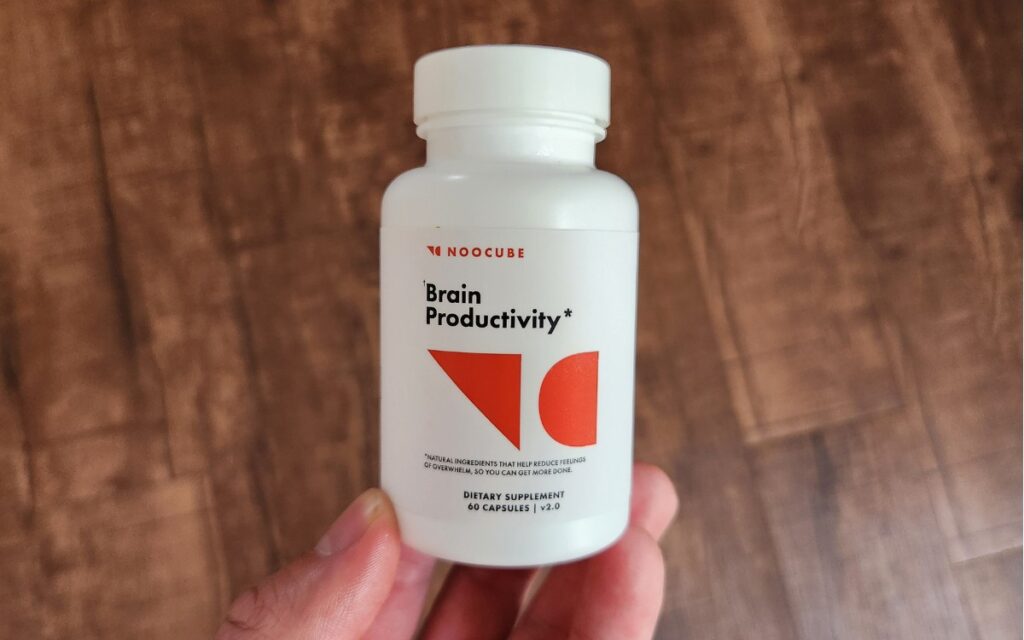
NooCube is a nootropic that enhances focus, memory, and alertness, lowers brain fog and fatigue, and improves general brain health.
It is owned and manufactured by Wolfson Brands, which is also known for other products like Crazy Nutrition, Biotics 8, and Testoprime.
The all-natural, twelve-component, caffeine-free formula is designed for athletes, students, gamers, and working professionals from all fields.
It has the potential to improve overall cognitive function and daily performance.
Noocube’s benefits gradually and safely increase over time because the supplement only contains tested and scientifically proven substances with rare and harmless side effects.
Go to my NooCube review for a more detailed look at each ingredient and my experience with it.
What Is Mind Vitality?

Mind Vitality is a nootropic made by Health Nutrition Limited, which manufactures Blackwolf pre-workout and Testogen.
The supplement is intended to be an all-in-one solution for improving mental energy, attention, concentration, and cognitive function.
It addresses common problems like mid-afternoon energy slumps and procrastination by offering a natural and legal solution to increase productivity and combat fuzzy thinking.
Unlike caffeine-filled products, Mind Vitality delivers an energy boost without the inevitable caffeine energy crash or possible anxiety and sleep issues.
The detailed results from my 30-day test and a full ingredients breakdown can be found in my Mind Vitality review.
Noocube vs. Mind Vitality Main Differences

Benefits
Noocube has several potential benefits and addresses the entire spectrum of cognitive performance. The product can boost concentration, problem-solving abilities, memory, and mental alertness.
Other advantages of Noocube include eye protection from screen-related weariness and brain fog, which makes it especially appealing to people who work in front of screens.
Mind Vitality is marketed as a natural and safe way to eliminate “fuzzy” thinking. The product includes various plants and herbs working together to provide mental energy and clear brain fog.
This will make you more productive and focused, helping you get in the zone more often and stay there longer.
The product claims to have found the right formulation, maximizing three pathways: lowering stress, boosting focus, and enhancing cognition.
Both products aim to deliver mental energy throughout the day without the help of caffeine and the associated energy crashes.
Ingredients
Noocube has a solid list of 12 ingredients working synergistically to boost brain power and let your cognition work at its best.
Mind Vitality has a similar approach but a few more ingredients, for a total of 17, including 4 vitamins that are not active ingredients. Roughly half of the components in the two products match, while the rest are different.
Noocube is currently at formulation version 3.0, which changed some of the sources to remove allergens.
L-theanine, an amino acid found in green tea, is a powerful antioxidant used in almost all nootropics due to its proven positive effect on stress reduction, verbal fluency, and executive function. [1][2]
The second core nootropic component is L-tyrosine, which improves mind flexibility and helps with the all-important multitasking [3].
L-tyrosine also shows notable efficacy during challenging situations. Both Noocube and Mind Vitality contain 250 mg.
The next active ingredient is the Ayurvedic herb Bacopa monnieri. The plant has been used alone and in formulations to improve language learning, memory acquisition, and delayed recall by increasing the activation of brain receptors. [4]
Mind Vitality has a slightly higher dose of 300 mg Bacopa, which is the recommended dose, while Noocube has 250 mg.
Huperzine A is a substance found in both products linked with assisting recovery from brain injuries and enhancing brain function in patients with Alzheimer’s disease [8,9].
For some reason, Mind Vitality includes a tiny 200 mcg, while Noocube has 20 mg.
Cat’s claw is a common ingredient in nootropic formulations, including Noocube, because it has traditionally been used to improve cognitive performance.
Lutemax 2020 gets a lot of marketing space on Noocube’s website. It is a blend of three carotenoids that boost brain regions responsible for memory, listening comprehension, and visual acuity.
A study published in the Journal of Aging Research found older men and women with normal cognitive strength in their later years had higher levels of the three carotenoids in the brain’s information-processing centers.
Panax ginseng, a well-studied ingredient in Noocube and Mind Vitality, has long been used to reduce stress. Recent research shows several cognitive benefits, such as improved working memory and faster recall. [5,6,7]
Mind Vitality uses Korean ginseng, comparable to the one in Noocube, but the dosage is lower: 100 mg compared to 160 mg in Noocube.
Mind Vitality contains 200 mg of Ashwagandha, an age-old herbal remedy used to relieve stress and improve sleep, among other benefits.
It also has one of my favorite nootropic ingredients, Lion’s mane mushroom.
These fungi contain compounds that stimulate nerve growth factors. Studies have also shown Lion’s Mane improves cognitive function, including memory and brain cell regeneration [11].
Mind Vitality also contains a few other potent nootropic ingredients, such as Ginkgo Biloba and Choline. However, both are heavily underdosed, and it’s unlikely they would bring the benefits possible in higher doses.
Stimulant vs. Non-Stimulant

Both products do not contain stimulants and are marketed as a clean and safe energy source. They can help you feel less fatigued after long, demanding work days.
This means they deliver mental energy and clarity but not as quickly or as noticeably as products containing caffeine, which is the most common stimulant used in nootropics.
The upside of no-caffeine is that you won’t experience energy crashes and can take the pills later in the day.
Keep in mind Mind Vitality warns about taking the product close to bedtime as it may still disrupt your sleep.
Short vs. Long-Term Effects
Experts and regular users agree non-stimulant nootropics work best when taken over time. The accumulation of the ingredients in the body strengthens the effects on energy, focus, and memory.
This is why it’s advised to take nootropics for at least three months to reap the full benefits.
For this reason (and to ensure a more certain profit), companies usually offer a solid discount when you buy in bulk for three or more months, as is the case with Noocube and Mind Vitality.
Clinical Research
All 12 of Noocube’s constituents have a scientific basis, though to varied degrees. Some, including L-theanine and Bacopa monnieri, have been extensively researched for their effects, while others have limited proof.
According to the Noocube website, the effectiveness of Lutemax2020, which appears to be a central element of the formulation, was confirmed in a randomized, double-blind, placebo research of 59 healthy people over 6 months [10].
Mind Vitality also doesn’t have a complete formula study. Like Noocube, all ingredients have some clinical studies done on them, and you can find relevant ones on the company’s website.
Some are more speculative, and the evidence is limited, but nevertheless, there is some literature to read about them if you like digging deep into this kind of stuff.
Side Effects
Both products use natural ingredients that are generally well tolerated by most people, myself included. I haven’t experienced adverse effects from Noocube or Mind Vitality.
But, with so many ingredients in the mix, some people are bound to experience stomach issues, dizziness, or light headaches.
If you’ve used nootropics before, you won’t have issues with these two. If one of them is your first product of this type, practice some caution and be aware of possible adverse effects.
User Reviews
The area where both are severely lacking is user reviews. Noocube has five user reviews picked by the company on its website, and that’s it. Without surprises, all of them are happy customers.
The situation with Mind Vitality is the same, if not worse. The product does not have a single user review on the official website.
This means the only reviews you can find are done by professional testers or possibly on a forum thread somewhere on the internet.
Price
| Product | 1 / 1 bottle | 3 / 3 bottles | 5 / 5 bottles |
|---|---|---|---|
| NooCube | $64.99 / 30 servings ($1.95/ serving) | $129.99 / 90 servings ($1.44/serving) | $194.99 / 150 servings ($1.30/serving) |
| Mind Vitality | $69.99 / 30 servings ($2.33/serving) | $139.99 / 90 servings ($1.56/serving) | $209.99 / 150 servings ($1.40/serving) |
My Experience With Noocube And Mind Vitality

Despite being similar products, my experience with Noocube has been much better than with Mind Vitality.
It is one of the few non-stimulant nootropics I recommend to customers and friends because it consistently delivers results and is affordable.
Whenever I start taking Noocube, my cognition and mental alertness improve with every week of intake.
I like the stimulant-free approach for long-term use because I can count on it to take me through demanding tasks without drawbacks like anxiety or energy crashes.
Mind Vitality is not a bad product, but I haven’t felt any better or more energetic in one month of taking it.
Perhaps it’s the low doses, maybe it’s the formulation, or simply my body doesn’t react as well to it, which is always a possibility with nootropics.
In any case, my experience was underwhelming.
Should You Choose Noocube Or Mind Vitality?
My strong recommendation is to go for Noocube. Despite being underdosed on some elements, it’s still better dosed than Mind Vitality, and its overall effect on me is significantly more noticeable.
Then another issue I have with Mind Vitality is the pills. A serving contains 3 pills, which are neither capsules nor coated pills. They aren’t particularly small, either.
So, having to swallow 3 big and rough pills every day has become a chore, and I wished I didn’t have to continue.
If you have problems with big pills, Mind Vitality won’t be easy to swallow, quite literally.
Finally, in addition to being a more effective product, Noocube is also slightly cheaper than Mind Vitality, which only fortifies my opinion that it is the better supplement.
However, if you want the best, then you should check out Mind Lab Pro.
Winner
Second Option
NooCube Brain Productivity
A non-stimulant nootropic with a comprehensive formulation for smooth energy and long-term brain health.
CHECK CURRENT DEALSReferences
- Hidese, S., Ogawa, S., Ota, M., Ishida, I., Yasukawa, Z., Ozeki, M., & Kunugi, H. (2019). Effects of L-theanine administration on stress-related symptoms and cognitive functions in healthy adults: a randomized controlled trial. Nutrients, 11(10), 2362.
- Williams, J. L., Everett, J. M., D’Cunha, N. M., Sergi, D., Georgousopoulou, E. N., Keegan, R. J., … & Naumovski, N. (2020). The effects of green tea amino acid L-theanine consumption on the ability to manage stress and anxiety levels: A systematic review. Plant foods for human nutrition, 75, 12-23.
- Steenbergen, L., Sellaro, R., Hommel, B., & Colzato, L. S. (2015). Tyrosine promotes cognitive flexibility: evidence from proactive vs. reactive control during task switching performance. Neuropsychologia, 69, 50-55.
- Morgan, A., & Stevens, J. (2010). Does Bacopa monnieri improve memory performance in older persons? Results of a randomized, placebo-controlled, double-blind trial. The journal of alternative and complementary medicine, 16(7), 753-759.
- Park, K. C., Jin, H., Zheng, R., Kim, S., Lee, S. E., Kim, B. H., & Yim, S. V. (2019). Cognition enhancing effect of panax ginseng in Korean volunteers with mild cognitive impairment: a randomized, double-blind, placebo-controlled clinical trial. Translational and Clinical Pharmacology, 27(3), 92-97.
- Kennedy, D. O., Reay, J. L., & Scholey, A. B. (2007). Effects of 8 weeks administration of Korean Panax ginseng extract on the mood and cognitive performance of healthy individuals. Journal of Ginseng Research, 31(1), 34.
- Kennedy, D. O., & Scholey, A. B. (2003). Ginseng: potential for the enhancement of cognitive performance and mood. Pharmacology Biochemistry and Behavior, 75(3), 687-700.
- Li, J., Wu, H. M., Zhou, R. L., Liu, G. J., & Dong, B. R. (2008). Huperzine A for Alzheimer’s disease. Cochrane Database of Systematic Reviews, (2).
- Mei, Z., Zheng, P., Tan, X., Wang, Y., & Situ, B. (2017). Huperzine A alleviates neuroinflammation, oxidative stress and improves cognitive function after repetitive traumatic brain injury. Metabolic Brain Disease, 32, 1861-1869.
- Nicole T. Stringham, Philip V. Holmes, James M. Stringham, Effects of macular xanthophyll supplementation on brain-derived neurotrophic factor, pro-inflammatory cytokines, and cognitive performance, Physiology & Behavior,Volume 211, 2019, https://doi.org/10.1016/j.physbeh.2019.112650.
- La Monica, M. B., Raub, B., Ziegenfuss, E. J., Hartshorn, S., Grdic, J., Gustat, A., … & Ziegenfuss, T. N. (2023). Acute Effects of Naturally Occurring Guayusa Tea and Nordic Lion’s Mane Extracts on Cognitive Performance. Nutrients, 15(24), 5018.
Affiliate Disclosure:
The links provided may earn us a small commission at no additional cost to you if you choose to purchase the recommended product. This support allows our research and editorial team to continue providing high-quality recommendations. As a participant in the Amazon Services LLC Associates Program, an affiliate advertising initiative, we are able to earn advertising fees through providing links to products on Amazon.com. Please rest assured that we only recommend high-quality products.

